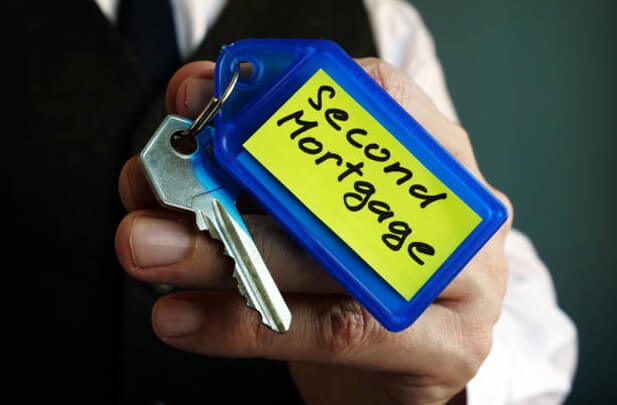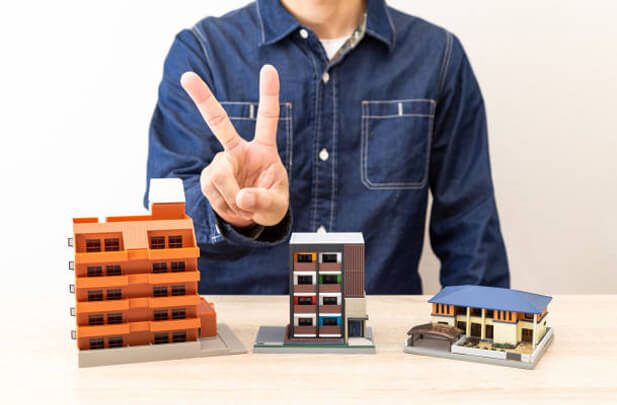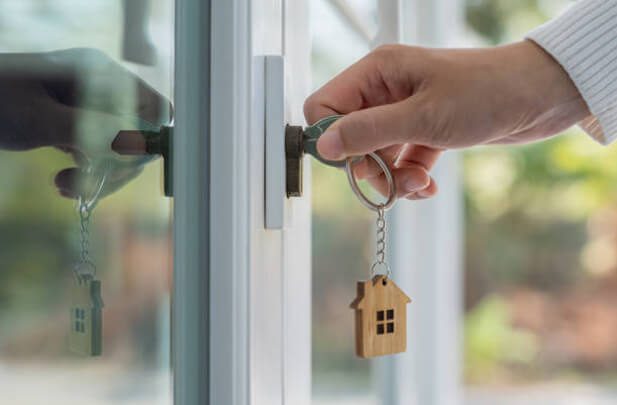In the dynamic real estate landscape of the UAE, the prospect of owning multiple mortgages is a question that often arises, particularly for first-time homebuyers. Understanding the intricacies of the market and the criteria for obtaining multiple mortgages is crucial for those looking to invest in property.
Can I have more than one mortgage?

Contrary to common misconceptions, the UAE allows individuals to hold more than one residential mortgage. This opens up exciting opportunities for those looking to diversify their real estate portfolio. However, prospective buyers must be aware that lenders have stringent criteria in place to ensure responsible lending practices.
How many mortgages can I have at the same time?
Now that we know having more than one mortgage is possible, you might be wondering how many you can have at once. The good news is, you can have as many as you want – as long as you meet the requirements!
But here’s the catch: it’s important to have a good reason for having more than one mortgage because it can get expensive. For instance, having lots of homes might not be practical, but having multiple properties to rent out could be a smart move.
What are the eligibility criteria for taking out a second mortgage?

The criteria for qualifying for a second mortgage are similar to those for obtaining your initial mortgage. You’ll need to furnish proof of your income, employment status, debts, and monthly expenses. Additionally, your lender will assess your credit score.
So, what information are they looking for?
In broad terms, the majority of mortgage lenders typically use the following criteria as a starting point when determining your eligibility:
- Age and residency status
- Desired loan amount
- Savings available for a deposit
- Credit score
- Employment status and income
- Existing debts
- Spending patterns
- Property details (type, size, and location)
The debt-to-income ratio is a key consideration for lenders in the UAE. This metric ensures that you can handle additional monthly payments alongside your existing mortgage.
The calculation is straightforward. For example, if your monthly income is AED 10,000 and your mortgage repayment is AED 2,300, your debt-to-income ratio is approximately 23%—a favorable target. Generally, having a debt that is less than 25% of your monthly income provides access to a range of mortgage options.
If your second property is intended for buy-to-let purposes, the lender will also evaluate whether you can afford the mortgage based on the rent you plan to charge, taking into account the feasibility of the amount in your area.
Additional costs for a second mortgage

Getting another mortgage is doable, but it might cost more than your first one. Here’s why:
You may need to contribute a larger deposit.
To secure a mortgage for first-time buyers in the UAE, the UAE Central Bank mandates a 20% down payment (15% for UAE nationals) along with associated expenses.
Expatriates and non-residents aiming to purchase a property below AED 5 million must make a minimum down payment of 20% of the property’s value (15% for UAE nationals).
For a second mortgage in the UAE, the down payment requirements may vary depending on the lender and the specific circumstances. Generally, lenders may require a higher down payment compared to the first mortgage.
It’s advisable to check with individual lenders to understand their specific terms and conditions for obtaining a second mortgage in the UAE.
Improving your chances of getting a second mortgage

With the extra expenses and challenges in mind, you’re likely wondering how to make getting a second mortgage easier.
Here are some things you can do to increase your chances of approval and potentially snag a better deal for long-term savings.
- Settle any high-interest loans and credit card balances. Unlike these ‘high-risk’ debts, existing mortgage debt typically won’t negatively impact your mortgage application.
- Work on enhancing your credit score. You can do this by making timely payments on existing debts, minimizing new credit applications, and reviewing your credit report for any inaccuracies. A higher credit score can improve your overall financial standing and increase your chances of securing a favorable mortgage deal.
- Increase your savings for a larger deposit. This is especially crucial for buy-to-let properties, or if you’re planning to purchase residential estate with the intention of renting it out to tenants. It helps lower the Loan-to-Value ratio, making you a more attractive borrower and potentially securing better mortgage terms. A substantial deposit also improves cash flow, reduces monthly payments, and expands investment opportunities in the real estate market.
- Seek mortgage advice from Sire Finance. As a trusted real estate company in the UAE, Sire Finance‘s expertise extends to navigating the intricacies of mortgage options, offering a whole-of-market approach. With Sire Finance, you can make informed decisions and secure the best mortgage deals available from high-street lenders and specialists.
How are Buy-to-let mortgages different from residential mortgages?
A Buy-to-Let mortgage in the UAE is tailored for property investment, focused on renting to tenants rather than personal use. The two also differ in several key aspects:
| Residential Mortgages | Buy-to-Let Mortgages | |
| Purpose of Property | Intended for properties where the borrower plans to live. | Designed for properties intended for rental income, not for personal residence. |
| Deposit Requirements | Typically have lower minimum deposit requirements, often starting at around 20%. | Generally require a higher minimum deposit, often at least 25%, reflecting the perceived risk associated with investment properties. |
| Interest Rates and Fees | Tend to have lower interest rates and fees compared to buy-to-let mortgages. | Often have higher interest rates and fees due to the higher risk associated with investment properties. |
| Loan Structures | Can be structured as repayment mortgages or interest-only mortgages. | Most commonly structured as interest-only mortgages, where the borrower pays only the interest during the mortgage term and repays the principal at the end. |
| Regulation | Regulated by the financial authorities to ensure consumer protection. | In many cases, buy-to-let mortgage lending isn’t as strictly regulated, though exceptions may exist. |
In summary, Residential Mortgages in the UAE are tailored for personal use, with lower deposits and stricter regulation. In contrast, Buy-to-Let Mortgages are designed for property investment, featuring higher deposits, potentially increased costs, and less regulatory oversight.
The distinction depends on individual preferences and investment goals.
Can I have more than one mortgage on the same property?

It is possible to have more than one mortgage on a property in the UAE, and this is often referred to as a ‘second charge mortgage.’
This type of mortgage allows you to use the equity in your home as collateral for another loan, resulting in two mortgages on the property. This option extends to any property you own, including Buy-to-Let properties, where the rental property can be used as security for the loan.
However, it’s crucial to note that failing to keep up with payments poses the risk of losing your home, with the primary mortgage taking precedence over the second charge mortgage. Obtaining two full mortgages on a single property may be challenging, as lenders typically prioritize the initial mortgage over a second charge mortgage.
What should I consider when taking out another mortgage?
So what other important things should you consider when exploring the prospect of obtaining a second mortgage?
1. Can you afford the new mortgage on top of your other mortgages?
Before getting another mortgage, check if you can handle the extra cost along with your existing mortgages. Evaluate whether you can comfortably manage the additional financial responsibility of a second mortgage alongside your existing ones.
Calculate the impact on your monthly budget, factoring in potential changes in interest rates and repayment terms. Ensure that taking on a new mortgage aligns with your current and future financial stability.
2. How’s your credit rating?
Your credit rating plays a pivotal role in securing favorable mortgage terms. Assess your credit score and history before pursuing another mortgage. A healthy credit rating enhances your chances of obtaining better interest rates and loan terms.
If your credit needs improvement, take proactive steps to address any issues, such as settling outstanding debts and ensuring timely payments, to strengthen your credit profile.
3. How risky might you seem?
Lenders evaluate the risk associated with borrowers, especially when considering multiple mortgages. Understand the perception of risk that lenders may have about your financial situation.
Factors such as stable income, a positive credit history, and a manageable debt-to-income ratio can mitigate perceived risk. Be prepared to address any concerns that lenders may have, presenting a comprehensive and responsible financial profile to enhance your eligibility for another mortgage.
Sire Finance: Your Partner in Property Ownership

At Sire Finance, we empower buyers with a direct and agent-free platform, facilitating a transparent and streamlined process. Whether you’re a first-time homebuyer or considering multiple mortgages, Sire Finance provides the tools and resources to navigate the UAE real estate market with confidence.
In conclusion, the prospect of having more than one mortgage in the UAE is not only possible but opens doors to diversified real estate investments. By arming yourself with knowledge and partnering with a reliable platform like Sire Finance, you can embark on your property ownership journey with clarity and confidence.




